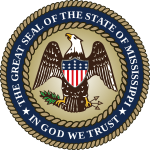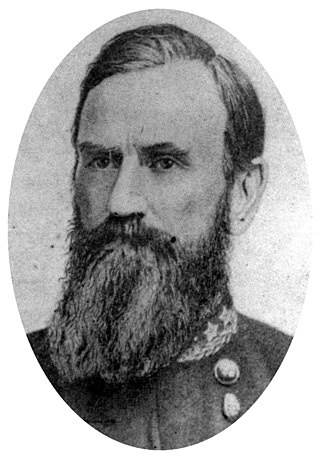
Benjamin Grubb Humphreys was an American politician from Mississippi. He was a general in the Confederate States Army during the American Civil War and served as Governor of Mississippi from 1865 to 1868, during Reconstruction.
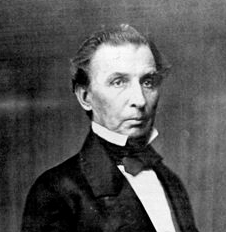
William Lewis Sharkey was an American judge and politician from Mississippi. A staunch Unionist during the American Civil War, he opposed the 1861 declared secession of Mississippi from the United States. After the end of the war, President Andrew Johnson appointed Sharkey as provisional governor of Mississippi in 1865.

The 1865 South Carolina gubernatorial election was held on October 18, 1865, to elect the governor of South Carolina. It was the first election in which the voters of South Carolina were able to directly choose the governor as a result of the ratification of the South Carolina Constitution of 1865. However, the constitution only permitted for white men to cast ballots, with blacks being forbidden from voting.

The 1998 Ohio gubernatorial election was held on November 3, 1998. Incumbent Republican Governor of Ohio George Voinovich could not seek a third term as Governor due to term limits, and ran for the United States Senate instead. To replace him, former Attorney General of Ohio Lee Fisher and Ohio Secretary of State Bob Taft won the Democratic and Republican primaries, respectively. Taft and Fisher faced off in a highly competitive general election, and in the end, Taft beat out Fisher by a narrow margin, making this gubernatorial election one of Ohio's closest.

The 2011 Mississippi gubernatorial election was held on November 8, 2011. Incumbent Republican Governor of Mississippi Haley Barbour was unable to run for a third term due to term limits.

United States gubernatorial elections were held in the fall of 1979, in three states and one territory.

The 1918 Pennsylvania gubernatorial election occurred on November 5, 1918. Incumbent Republican governor Martin Brumbaugh was not a candidate for re-election. Republican candidate William Sproul defeated Democratic candidate Eugene C. Bonniwell to become Governor of Pennsylvania.

The 1922 Pennsylvania gubernatorial election occurred on November 7, 1922. Incumbent Republican governor William Sproul was not a candidate for re-election. Republican candidate Gifford Pinchot defeated Democratic candidate John A. McSparran to become Governor of Pennsylvania. John Stuchell Fisher unsuccessfully sought the Republican nomination.

The 1926 Pennsylvania gubernatorial election occurred on November 2, 1926. Incumbent Republican governor Gifford Pinchot was not a candidate for re-election. Republican candidate John Fisher defeated Democratic candidate Eugene C. Bonniwell to become Governor of Pennsylvania. Edward E. Beidleman, Thomas Wharton Phillips Jr., and John K. Tener unsuccessfully sought the Republican nomination.
Ephraim S. Fisher was a justice of the Mississippi High Court of Errors and Appeals from 1852 to 1860. He also served in the Mississippi Senate in the 1840s and was a candidate for governor after the Civil War.

The 1870 Alabama gubernatorial election took place on November 8, 1870, in order to elect the governor of Alabama. Incumbent Republican William Hugh Smith was narrowly defeated by Democrat Robert B. Lindsay.

The 1983 Mississippi gubernatorial election took place on November 8, 1983, in order to elect the Governor of Mississippi. Incumbent Democrat William Winter was term-limited, and could not run for reelection to a second term. As of 2023, this is the last time that Hinds County has voted for the Republican candidate.

The 1968 United States presidential election in Mississippi was held on November 5, 1968. Mississippi voters chose seven electors, or representatives to the Electoral College, who voted for President and Vice-President. During the 1960s, the Civil Rights Movement dictated Mississippi's politics, with effectively the entire white population vehemently opposed to federal policies of racial desegregation and black voting rights. In 1960, the state had been narrowly captured by a slate of unpledged Democratic electors, but in 1964 universal white opposition to the Civil Rights Act and negligible black voter registration meant that white Mississippians turned almost unanimously to Republican Barry Goldwater. Goldwater's support for "constitutional government and local self-rule" meant that the absence from the ballot of "states' rights" parties or unpledged electors was unimportant. The Arizona Senator was one of only six Republicans to vote against the Civil Rights Act, and so the small electorate of Mississippi supported him almost unanimously.
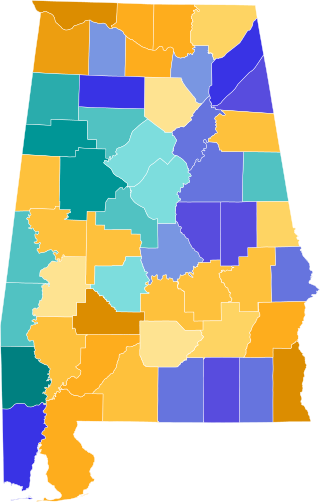
The 1865 Alabama gubernatorial election took place on November 6, 1865, in order to elect the governor of Alabama. Whig Robert M. Patton won with a narrow plurality of the votes, beating Democrat Michael J. Bulger by about 4,000 votes.

The 1865 Connecticut gubernatorial election was held on April 3, 1865, the last such election held during the American Civil War, and the last gubernatorial election in which the Republicans adopted the National Union Party name. It was a rematch of the 1864 Connecticut gubernatorial election. Incumbent governor and National Union nominee William Alfred Buckingham defeated Democratic nominee Origen S. Seymour with 57.48% of the vote. It was the eighth and last of Buckingham's consecutive victories.
Patton Jones Yorke was a plantation owner and politician in Louisiana. He represented Carroll Parish in the Louisiana House of Representatives. He served from 1868 to 1873.

The 1819 New Hampshire gubernatorial election was held on March 9, 1819.
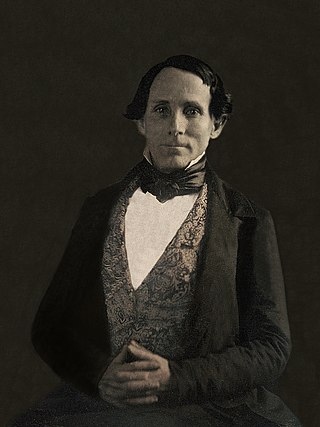
The 1851 Mississippi gubernatorial election was held on 4 November 1851 in order to elect the Governor of Mississippi. Democratic US Senator for Mississippi Henry S. Foote, who ran on a Unionist platform, defeated the Southern Rights Party nominee and fellow Democratic US Senator for Mississippi before resigning on 23 September 1851 to run in the gubernatorial election, Jefferson Davis.
A gubernatorial election was held in Mississippi from June 22 to 23, 1868. The Conservative candidate Benjamin G. Humphreys, who was the 26th governor of Mississippi from 1865 until June 15, 1868, outpolled the Republican candidate Beroth B. Eggleston, the former president of the state constitutional convention. However, in a concurrent referendum, voters rejected the proposed Constitution of Mississippi; consequently, the results of the election were declared invalid, and Adelbert Ames, the incumbent military governor following Humphrey's removal, continued in office until after the next election.



